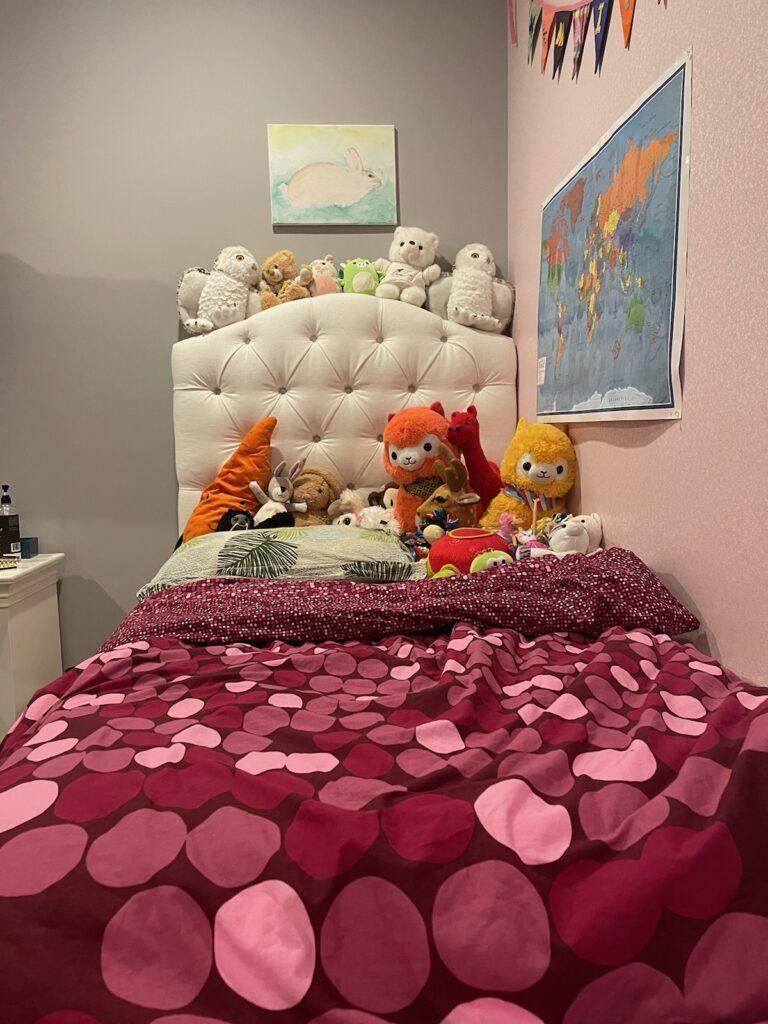As a young child, I would often sit in the living room and play with my multitude of stuffed animals: A large orange carrot from REI, Knuffle bunny, a hand sewn doll my mother made, monkeys and more. They would be my children, friends, fellow spies or some other imaginative creature that would keep me entertained.
I slept with them every night too, and at some point, there were 20 to 30 stuffed animals on my bed with me, until I had no space left. Still, I refused to let my stuffed animals go and kept them near and dear to my heart.
But then, the sneezing started. I would give my carrot a hug for comfort. An immediate sneeze followed. I put my face in my pillow to suppress the sudden bursts. An immediate sneeze again. I also woke up with a stuffy nose.
After a thorough allergy test, I learned I had an allergy to dust mites, and it absolutely devastated me. Dust mites are commonly found in stuffed animals, bedding, couches and more, and my allergic reaction made it difficult to keep them as close as I used to, as the dust mites in my dozens of stuffed animal residents irritated my allergies.
My parents and I fought over removing them from my room, with me eventually relenting tearily. As I grow older, I sometimes still sacrifice free breathing and non-itchy eyes to hug my huge unicorn, named Unicorn (I know, so creative), mango-colored alpaca, Mr. Mango Squigglypants or my carrot stuffed animal, Carroty (seriously, my creativity is really shining through).
Stuffed animals also provide a place for children to develop creativity and imagination, coming up with fun scenarios to play out with their toys. This helps develop critical thinking and problem solving skills, as well as with language development.
As children, it might be difficult to express emotions with clear words and stuffed animals can help them communicate their emotional needs effectively.
Even as adults, stuffed animals can provide relief during anxiety and comfort, with 40% of adults who once owned a stuffed animal as a kid saying they sometimes sleep with one, according to a survey by the company Build-A-Bear. While that survey might be biased and the number seems high, research has shown that the very act of hugging something soft such as a pillow in itself can help reduce stress.
On playdates, my friends and I would play with our stuffed animals, building close friendships and imagining different jobs and futures for ourselves. The comfort they provided lends to the nostalgia I feel when holding them today. Each stuffed animal holds a different fond memory.
My refusal to get rid of them all together means I have a collection of memories and childhood hidden above my closet drawers. Stuffed animals’ nostalgia and comfort are unparalleled and always will be, even if they do cause me to run for the Kleenex box afterward.


























